
7-vehicle crash kills 1, injures 2 near Indianapolis
One person is dead and two are hospitalized after a seven-vehicle crash just outside of Indianapolis shut down part of a freeway and left one car upside down and engulfed in flames, police say.
2023-05-28 21:19
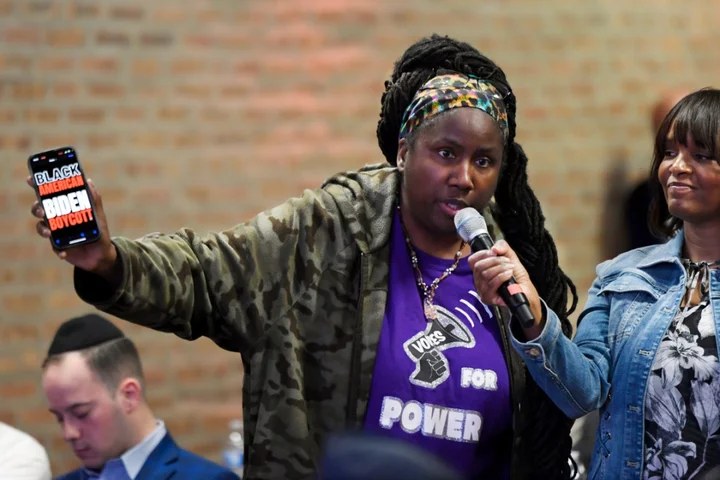
Diverse Republican presidential primary field sees an opening in 2024 with voters of color
During Donald Trump's first visit as president to Chicago, a frequent target in his attacks on urban violence, he disparaged the nation's third largest city as a haven for criminals and a national embarrassment. At a recent town hall, Republican presidential contender Vivek Ramaswamy sat alongside ex-convicts on the city's South Side and promised to defend Trump's “America First” agenda. In return, the little-known White House hopeful, a child of Indian immigrants, found a flicker of acceptance in a room full of Black and brown voters. The audience nodded when Ramaswamy said that “anti-Black racism is on the rise,” even if they took issue with his promise to eliminate affirmative action and fight “woke” policies. “America First applies to all Americans — not just the few that Republicans talk to,” he said. Race has emerged as a central issue — and a delicate one — in the 2024 presidential contest as the GOP's primary field so far features four candidates of color, making it among the most racially diverse ever. South Carolina Sen. Tim Scott, the first Black senator in the South since Reconstruction, entered the contest earlier in the month. He joined Nikki Haley, a former South Carolina governor and U.N. ambassador who is of Indian descent, and Larry Elder, an African American raised in Los Angeles' South Central neighborhood who came to national attention as a candidate in the failed effort two years ago to recall California Gov. Gavin Newsom. Miami Mayor Francis Suarez, who is of Cuban descent, says he may enter the race in the coming days. Most of the candidates of color are considered underdogs in a field currently dominated by Trump and Florida Gov. Ron DeSantis. Yet the party’s increasingly diverse leadership, backed by evolving politics on issues such as immigration, suggest the GOP may have a real opportunity in 2024 to further weaken the Democrats’ grip on African Americans and Latinos. Those groups have been among the most loyal segments of the Democratic coalition since Republican leaders fought against the Civil Rights Act of 1964. The Republican presidential contenders of 2024 walk a fine line when addressing race with the GOP’s overwhelmingly white primary electorate. In most cases, the diverse candidates in the Republican field play down the significance of their racial heritage. They all deny the existence of systemic racism in the United States even while discussing their own personal experience with racial discrimination. They oppose policies around policing, voting rights and education that are specifically designed to benefit disadvantaged communities and combat structural racism. The NAACP recently issued a travel advisory for the state of Florida under DeSantis' leadership, warning of open hostility “toward African Americans, people of color and LGBTQ+ individuals.” The notice calls out new policies enacted by the governor that include blocking public schools from teaching students about systemic racism and defunding programs aimed at diversity, equity and inclusion. The Republican presidential candidates of color largely support DeSantis' positions. Marc Morial, president and CEO of the National Urban League, said the GOP’s policies are far more important than the racial and ethnic diversity of their presidential candidates. He noted there also were four Republican candidates of color in 2016, the year Trump won the White House after exploiting tensions over race and immigration. “White nationalists, insurrectionists and white supremacists seem to find comfort in the (Republican) Party,” Morial said. “I think we’re beyond the politics of just the face of a person of color by itself appealing to people of color. What do you stand for?” With few exceptions, the Republican candidates who have entered the presidential primary field have embraced the GOP's “anti-woke” agenda, which is based on the notion that policies designed to address systemic inequities related to race, gender or sexuality are inherently unfair or even dangerous. DeSantis this past week described such policies as “cultural Marxism.” Still, the GOP's diverse field is not ignoring race. Indeed, some candidates are making their race a central theme in their appeal to Republican primary voters even as they deny that people of color face systemic challenges. Scott insisted that America is not a racist country in his recent announcement speech. “We are not defined by the color of our skin. We are defined by the content of our character. And if anyone tells you anything different, they’re lying,” he said. In her announcement video, Haley noted that she was raised in a small town in South Carolina as “the proud daughter of Indian immigrants — not black, not white, I was different.” Like Scott, she has defended the GOP against charges of racism. “Some think our ideas are not just wrong, but racist and evil," Haley said. "Nothing could be further from the truth." Elder is quick to criticize the Democrats’ “woke” agenda, Black Lives Matter and the notion of systemic racism. Critics say such messages are actually designed to win over suburban white voters more than to attract voters of color. But on the South Side of Chicago on a recent Friday afternoon, there were signs that some Black voters were open to the GOP's new messengers, given their frustration with both political parties. One attendee at Ramaswamy's town hall waved a flyer for a “Biden boycott” because the Democratic president has not signaled whether he supports reparations for the descendants of slaves, although Biden did back a congressional effort to study the issue. None of the GOP's presidential candidates supports reparations, either. Others condemned Democrats, in Chicago and in Washington, for working harder to help immigrants who are in the country illegally than struggling African American citizens. Federal officials were preparing to relocate hundreds of migrants from the U.S.-Mexico border to the South Side, even as many local residents struggled with violence and difficult economic conditions. “It is certainly true that there are multiple shades of melanin in this Republican race,” Ramaswamy said in an interview before the event. “I think that in some ways dispels the myth that much of the left will perpetuate that this is somehow you know, a racist party or whatever drivel.” He added: “But personally, I could care less what someone’s skin color is. I think what matters is, what are they going to accomplish? What’s their vision?” As of now, the GOP does not have any Hispanic candidates in the 2024 contest. But Suarez, the Miami mayor, said he may change that in the coming days. “I think it’s important the field does have candidates that can connect with and motivate Hispanics to continue a trend that's already happening,” he said in an interview, noting that he's “very strongly” considering a White House bid. “Democrats have failed miserably to connect with Hispanics." A majority of Latino voters supported Biden in the 2020 presidential contest, according to AP VoteCast, an extensive national survey of the electorate. But Trump cut into that support in some competitive states, including Florida and Nevada, revealing important shifts among Latinos from many different cultural backgrounds. In last fall's midterm elections, support grew for Republican candidates among Black voters, although they remained overwhelmingly supportive of Democrats, AP Votecast found. Overall, Republican candidates were backed by 14% of Black voters, compared with 8% in the midterm elections four years earlier. While the shifts may be relatively small, strategists in both parties acknowledge that any shift is significant given how close some elections may be in 2024. In Chicago, Tyrone Muhammad, who leads Ex-Cons for Social Change, lashed out at Republicans for being “losers” for not seizing a very real opportunity to win over more African Americans. While sitting next to Ramaswamy on stage, he also declared that the Republican Party is racist. Later, he said he actually voted for Trump in 2020 because Trump enacted a criminal justice bill that aimed to shorten prison sentences for nonviolent drug offenders and address racial inequalities in the justice system. While the GOP has since embraced tough-on-crime rhetoric, Muhammed noted that Biden as a senator helped pass the 1994 crime bill that led to the mass incarceration of Black people. Muhammad said he might vote Republican again in 2024, despite the party's shortcomings. He pointed to the GOP's fight against illegal immigration as a core reason for support. “I may not like you as an individual, but I like your issues, I like your policies," he said. ___ Fields reported from Washington. Associated Press writer Thomas Beaumont in Des Moines, Iowa, contributed to this report. ___ The Associated Press receives support from several private foundations to enhance its explanatory coverage of elections and democracy. See more about AP’s democracy initiative here. The AP is solely responsible for all content. Read More Ukraine war’s heaviest fight rages in east - follow live Charity boss speaks out over ‘traumatic’ encounter with royal aide AP News Digest 8:40 a.m. Asylum-seekers say joy over end of Title 42 turns to anguish induced by new US rules Why Texas Attorney General Ken Paxton's impeachment fight isn't finished yet
2023-05-28 21:18
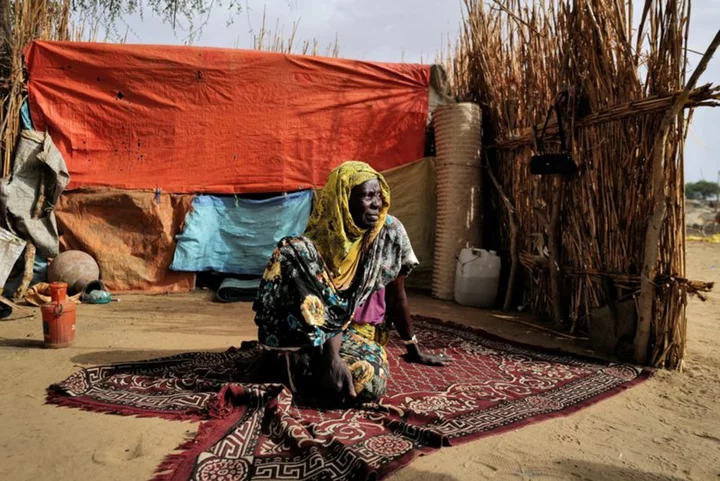
U.S., Saudi Arabia call for extended ceasefire in Sudan
By Khalid Abdelaziz DUBAI Saudi Arabia and the United States called on Sunday for the extension of a
2023-05-28 20:58

Melissa Kinsella: Mum left in coma in Turkey dies after UK return
Melissa Kinsella arrived back in the UK on Wednesday after £50,000 was raised to get her home.
2023-05-28 20:57
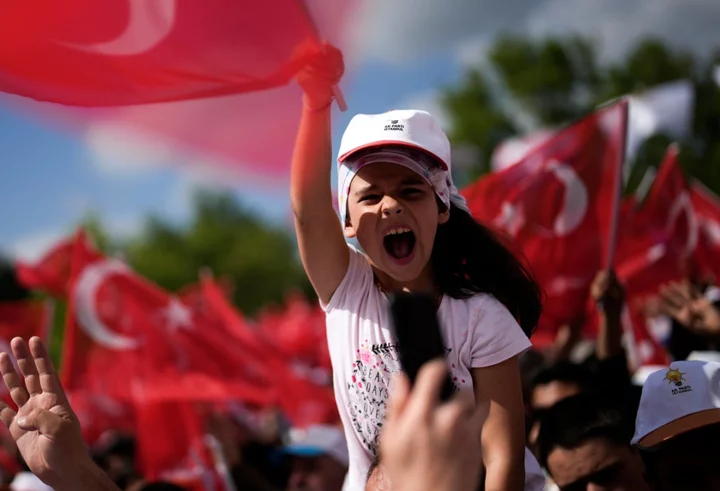
Turkey votes in an election of consequence for the nation and the world
Turkey’s President Recep Tayyip Erdogan seeks to strengthen his legacy today as his nation’s most consequential leader since its founder, Mustafa Kemal Ataturk, in an election run-off with major implications. Mr Erdogan has been campaigning frenetically in the weeks since he exceeded polling forecasts but fell shy of an outright majority in the 14 May first round of the elections, forcing Turkey into a run-off for the first time in its history. He faces off against Kemal Kilcdaroglu, leader of the centre-left People’s Republican Party (CHP) and architect of a six party opposition coalition which has posed the greatest political challenge to Mr Erdogan in his 20 years as either prime minister or president of Turkey. The election, on the centennial of Turkey’s founding as a modern republic, carries enormous weight for the country. It is seen as something of a defining moment in its political and cultural identity. Mr Erdogan represents an Islamically tinged nationalism, with appeals to Turkey’s Ottoman imperial past. Mr Kilicdaroglu and his party have sought to define themselves as European, steeped in an ideology and lineage rooted in Ataturk’s version of secularism. The election may also impact the dynamics of Nato, of which Turkey is a longtime member, and affect the outcome of the war between Russia and Ukraine as well as ongoing conflicts in the Middle East and North Africa. Lines at polling stations were reportedly shorter and more relaxed than the first round of the elections, in large part because voters face a simpler single ballot with two candidates rather than the complicated parliamentary choices of two weeks ago. Mr Erdogan appeared to be doing well in the run-up to the vote despite lingering worries over the economy he has overseen. “I think the country is doing well,” said Songul Safak, a 36-year-old jeweller who voted for Mr Erdogan. “The economy is doing badly because of the actions of other countries. In one video clip that went viral, a voter brought her pet lamb to the polls, the fluffy white creature in a striped sweater trundling behind her as she obtained and cast her ballot. Others brought their dogs and pet parrots. Turnout will be key, with more than 64 million registered voters, including nearly 2 million aboard who have already voted at record rates. Voters are heading to nearly 192,000 ballot boxes set up at school classrooms and community centres. Polls will close at 1700 local time (1400 GMT), with results trickling out an hour later. “We think that this election’s results will emerge earlier than the last time,” election authority chief Ahmet Yener told local media. There have been multiple reports of irregularities, including in an incident in the heavily contested southeastern province of Sanliurfa where opposition lawyers seeking to look into allegations of ballot stuffing were barred from a polling station. Mr Erdogan and his allies control much of the broadcast media and have been flooding the airwaves with his speeches in recent days while giving Mr Kilicdaroglu scant airtime. Turkey’s mobile phone authority recently barred the use of the country’s text-messaging services for political purposes, disallowing Mr Kilicdaroglu from sending texts to supporters while allowing Mr Erdogan to use the medium in his capacity as a government official. The country’s election laws were adjusted last year in ways critics said favoured Mr Erdogan. The Organisation for Security and Cooperation in Europe, which monitored the vote, stated in a report that Turkey’s election law “has substantial shortcomings and does not fully provide a sound legal basis for the conduct of democratic elections.” Crucial issues on voters’ minds include the status of migrants and refugees, national security matters and Turkey’s place in the world. But the country’s spiralling economy remains the top issue on everyone’s tongue and the one most impacting daily lives. The country’s inflation rate is among the highest in the world, and wages have failed to keep up with housing and food costs. “If it goes on like this Turkey will be Argentina in a few months,” Nevsin Mengu, an independent political analyst and broadcaster, said in an interview, referring to the Latin American country which has been for decades an international poster child for economic mismanagement. Mr Erdogan has dug deep into the country’s reserves and procured massive credits from Arabian Peninsula and Asian nations to prop up the Turkish lira. “Some countries from the Gulf and such stocked money in our system,” the president conceded in an interview with CNNTurk on Friday. “This relieved our central bank and market, even if for a short while." Despite his handling of the economy, Mr Erdogan’s path to victory today appears far easier and even assured compared to that of his challenger, opposition party leader Kemal Kilicdaroglu. He drew just short of 45 per cent while Mr Erdogan fell just a few hundred thousand votes short of securing a first-round victory. Opposition figures tried to remain upbeat. “I see a very high probability of Kilicdaroglu winning the election,” opposition party leader Ali Babacan told reporters after voting. But the opposition’s poor first-round performance has demoralised its supporters. “I think the elections are not fair at all, and I think Erdogan will ultimately win,” said Zeynel Circir, a 53-year-old electrical engineer voting in Istanbul. The first-round performance prompted Mr Kilicdaroglu to shift the tone and emphasis of his campaign from a message of hope and inclusiveness to focus almost exclusively on the several million Syrian and other refugees and migrants in the country. A victory by Mr Erdogan’s will spur soul-searching and perhaps major changes within the opposition. “The ballot box result is full of messages that need to be examined and lessons that need to be learned,” Istanbul mayor Ekrem Imamoglu, a leading opposition figure, said after casting his ballot. Yusuf Sayman contributed to this report.
2023-05-28 20:55
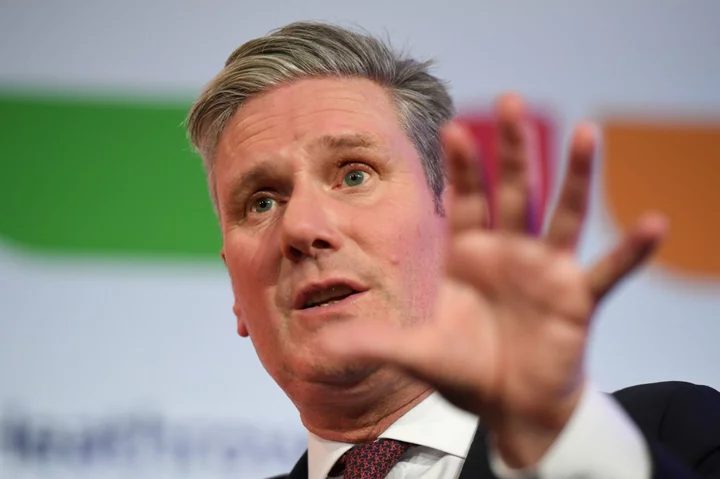
Starmer Plans to Block New North Sea Projects: The Times
UK Labour and opposition leader Keir Starmer will announce proposals to block all new North Sea oil and
2023-05-28 20:18

Europe's 'City of Atlantis' discovered after being lost for 600 years
The remains of a church from a sunken town known as the 'Atlantis of the North Sea' has been discovered beneath the mud on Germany's coast. The church is believed to be part of a site called 'Rungholt' located in the Wadden Sea. The town, which was previously thought to be a local legend, has not been seen since 1362 after it was submerged beneath the waves during an intense storm. However, new research has shown that the town really did exist and that they had built reinforcements around the settlement to protect them from the severe elements. The research was carried out on the area by archeologists from Kiel University, Johannes Gutenberg University Mainz, the Center for Baltic and Scandinavian Archaeology, and the State Archaeology Department Schleswig-Holstein. Sign up to our free Indy100 weekly newsletter Searching the Wadden Sea which is the longest stretch of intertidal sand and mud flats on Earth, the team, using geophysical imaging technology found man-made mounds that had been constructed to protect the town against the tides. Amongst this structure were the foundations of a building which the team determined had to be a church which may have been the location of the town centre. In a statement, Dr. Dennis Wilken, a geophysicist at Kiel University of Kiel University said: "Settlement remains hidden under the mudflats are first localized and mapped over a wide area using various geophysical methods such as magnetic gradiometry, electromagnetic induction, and seismics." Dr. Hanna Hadler from the Institute of Geography at Mainz University added: "Based on this prospection, we selectively take sediment cores that not only allow us to make statements about spatial and temporal relationships of settlement structures, but also about landscape development." Dr. Ruth Blankenfeldt, an archaeologist at ZBSA also suggested that the "special feature of the find lies in the significance of the church as the centre of a settlement structure, which in its size must be interpreted as a parish with superordinate function." The storm that washed away Rungholt has gone down in history as one of the largest to ever hit the region, affecting not just Germany but also the Netherlands, Denmark and the UK. The storm happened on January 1362 and has since been referred to as "the great drowning of men." According to historical reports, Rungholt was once a busy trading port for fishermen but was also populated by taverns, brothels and churches. Have your say in our news democracy. Click the upvote icon at the top of the page to help raise this article through the indy100 rankings.
2023-05-28 19:27
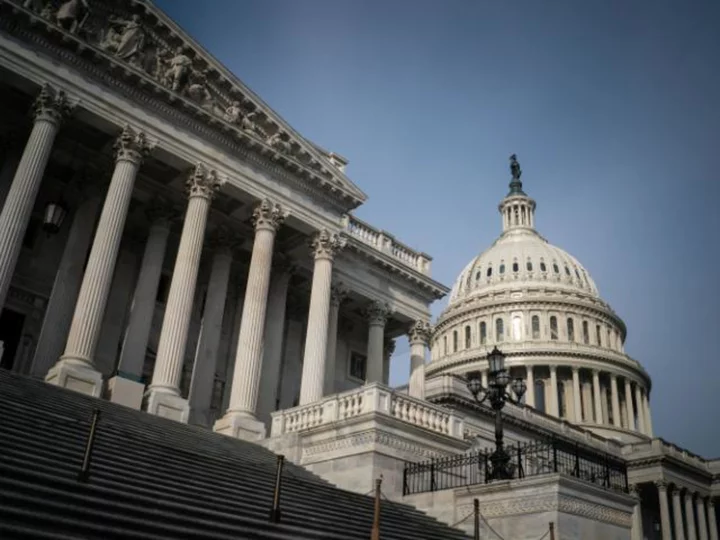
Here's what's in the debt ceiling deal
After several weeks of tense negotiations, President Joe Biden and House Republicans have reached an agreement in principle to raise the debt ceiling and cap spending.
2023-05-28 19:26
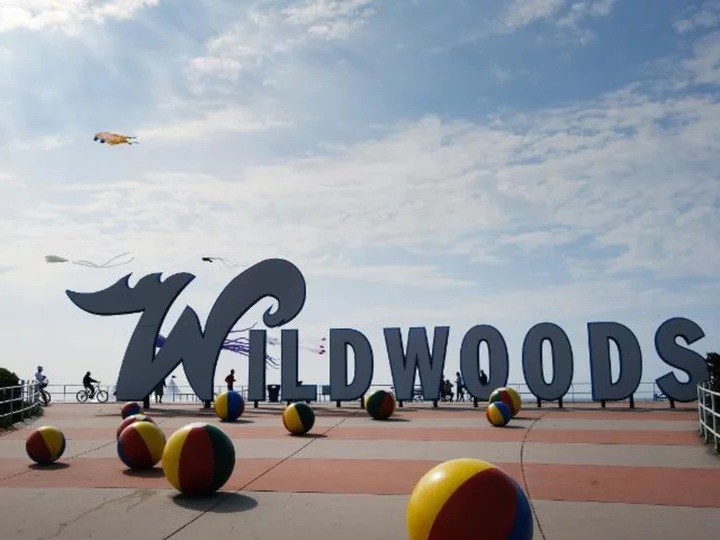
Jersey Shore town to crack down on the "mere existence of any kind of alcohol" on beach and boardwalk
Officials in New Jersey are banning the possession of alcohol on a popular beach and boardwalk after city commissioners unanimously passed the "stricter" ordinance.
2023-05-28 18:24
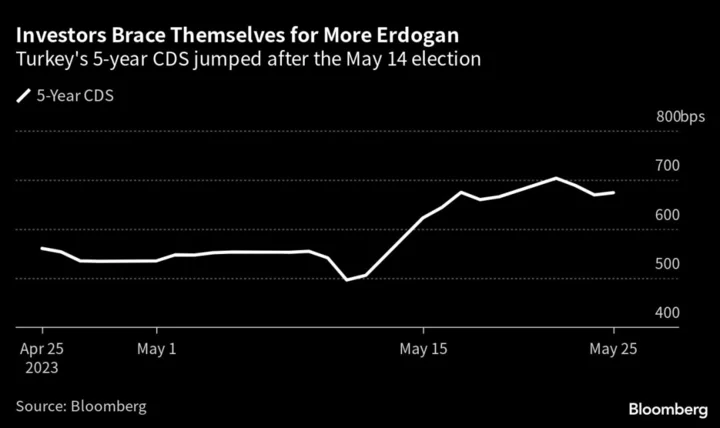
Erdogan Seeks to Seal Victory in Runoff for Turkish Presidency
Turkish President Recep Tayyip Erdogan is aiming to drive home an election victory to extend his rule well
2023-05-28 18:22
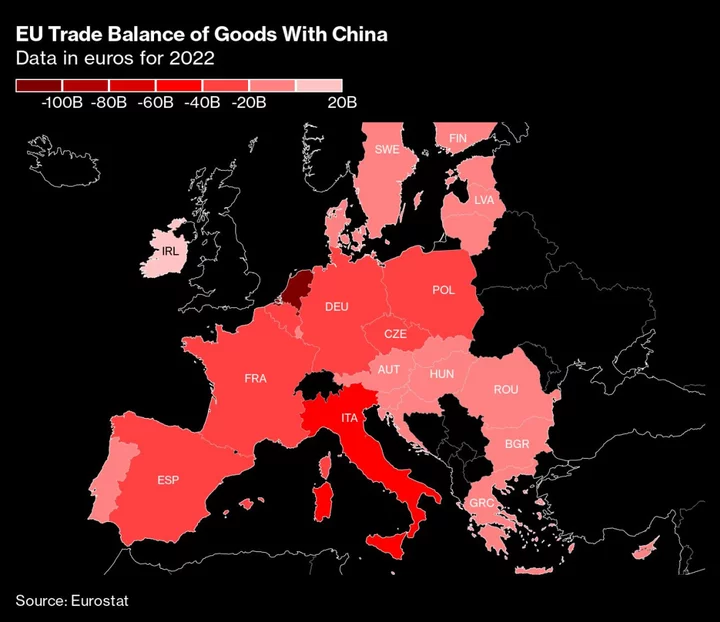
Italy Still Mulling Whether to Pull Out of China Pact: Meloni
Prime Minister Giorgia Meloni has yet to make a final decision on Italy’s controversial role in China’s Belt
2023-05-28 17:23

Uganda confirms casualties among country's soldiers in Somali attack
KAMPALA Uganda's President Yoweri Museveni said late on Saturday there had been casualties during an attack by Somalia's
2023-05-28 17:20
